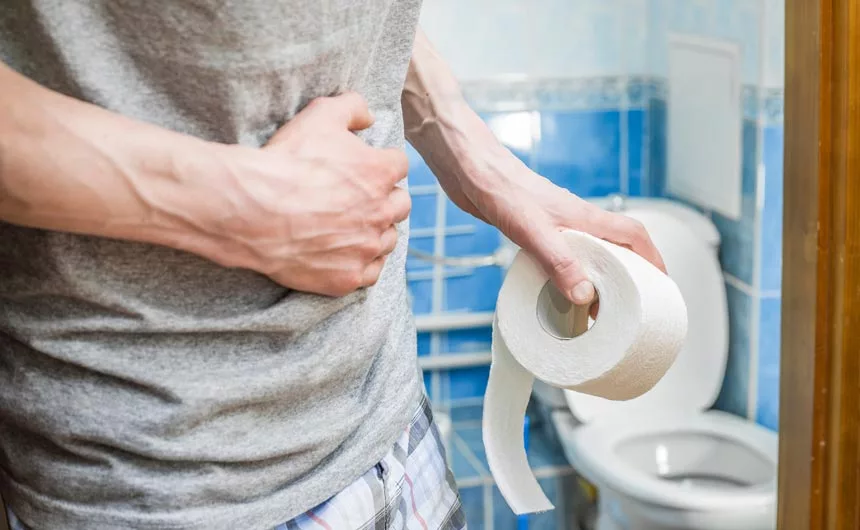What Is Codeine?
Table of Contents
Codeine is an opiate drug that is one of the most commonly prescribed opioid drugs. This unfortunately also makes it the most commonly abused drug among the many different opioid drugs. With our complete guide, learn to recognize the signs of codeine addiction quickly and easily.
Anyone can abuse and become addicted to codeine, but for the most part, younger individuals are the ones who are at risk for becoming addicted. According to the Drug Enforcement Administration (DEA), cough syrups like Robitussin A-C Syrup and Mytussin AC Cough Syrup contain the ingredient codeine, which is an opioid.
These cough syrups are usually only obtained by prescription, but unfortunately, many families simply have them in their medicine cabinets, waiting for the day when someone will need them. These cough syrups can cause a number of side effects if taken in large doses, allowing users to experience an intense high.
Young people often abuse these drugs because they are easier to obtain than street drugs and prescription drugs. They may mix them with soda or alcohol to hide the taste of the cough syrup.
This type of abuse seems harmless to many who participate in it, but the truth is that codeine abuse can quickly lead to addiction, especially in those who take the drug often.
How Does Codeine Affect The Body?

As codeine is a form of opioid prescribed for pain, it works in the central nervous system brain by reducing cell activity. Codeine attaches to specific receptors in the brain to cause analgesia or stop individuals from feeling pain. Some of the side effects of codeine can include:
- Constipation
- Headaches
- Stomach pain
- Dizziness
- Drowsiness
- Feeling faint
- Insomnia
Although codeine does not support recovery from chronic pain, the effects of codeine allow individuals with pain to feel relief from their experience. Codeine is used in mild to moderate pain rather than severe pain experiences. Other opioids or pain medications are used for severe and pain.
Opioids vs Opiates
Opioids and opiates are often referred to as the same thing which isn’t fully wrong, but it isn’t correct either. Opiates are entirely natural substances which interact with the opioid receptors within the body and brain.
Opioids are all forms of opioid substances including; natural, synthetic, or semi-synthetic chemicals which interact with the opioid receptors within the body and brain. This makes opiates essentially a subcategory of opioids.
Why Is Codeine Prescribed?
There are many individuals who undergo unbearable experiences and pain such as cancer patients. This medication is used to alleviate some of the symptoms that come with an individual’s experience.
Unfortunately, long-term use of codeine, despite the benefits of alleviating pain, may turn into a dependence upon codeine. This is why codeine is not usually prescribed for individuals dealing with chronic pain.
A dependence does not necessarily mean an individual is addicted to a substance however, a dependence can lead to an addiction.
What Are The Signs Of Codeine Abuse?
The signs and symptoms of addiction to codeine can be difficult to pinpoint if you don’t know what to look for. However, once you understand the way codeine affects the body, you can start to recognize the signs that someone you love is misusing this dangerous drug.
The acute symptoms of codeine abuse include:
- Euphoria
- Nausea
- Vomiting
- Confusion
- Stomach pain or cramps
- Drowsiness
- Itchiness
- Mood swings
- Slowed breathing
- No appetite
- Vision problems
According to a 2016 study published in the medical journal Therapeutic Advances in Chronic Disease, opioids can also cause intense constipation, especially in those who take them consistently.
This will also be an issue for those who misuse codeine, which is an opioid drug. Even those who take the cough syrup version of the drug will experience these symptoms. Many times, these individuals will attempt to ignore these symptoms in order to continue getting high.
However, once a person has been abusing codeine for more than a few weeks, they will start to become dependent on the drug, experience tolerance to its effects, and in most cases, become addicted to it.
There are other signs associated with drug addiction, most of which are behavioral, that you can notice if your loved one abuses this drug. The common signs and symptoms of codeine addiction include:
- A craving for codeine when unable to get it
- A need to put the drug before all else, including responsibilities, loved ones, etc.
- Frequent problems at school and work that can be linked to codeine abuse
- Financial issues associated with the use of codeine, as the individual will spend money on the drug that was meant for other things like rent, food, etc.
- Legal problems associated with the use of codeine, include getting a DUI/DWI, getting arrested, etc.
- Putting oneself or others in danger in order to obtain more of the drug
- Spending time with all new friends who use codeine
- Spending more time alone in order to use
- Acting secretive and refusing to tell others where he or she has been, what he or she was doing, etc. (National Library of Medicine)
- Making excuses to use codeine when it isn’t necessary
- Not taking care of one’s physical state, hygiene, clothes, etc.
- Losing weight rapidly
- Acting hostile when others bring up possible substance abuse
- An inability to stop using codeine, even if the individual wants to do so
These are all signs of a serious substance use disorder, one that is associated with the misuse of codeine.
Codeine Withdrawal Symptoms

With as addictive and strong as this opiate, as well as all opioids, is, an individual is likely to experience withdrawal symptoms. There are many unpleasant symptoms that can arise within an individual as a result of using codeine, physical and psychological included.
Codeine cough syrup side effects can include a number of issues that can affect the way the body works, especially when a person abuses this drug in large amounts and often. However, those who become addicted to this drug will usually become dependent on it as well.
This can lead to opioid withdrawal symptoms if the individual cannot obtain more of the drug.
Psychological symptoms:
- Anxiety
- Depression
- Agitation
- Insomnia
- Restlessness
Physical symptoms:
- Muscle pain
- Crying/tearing
- Sweating
- Runny nose
- Yawning
- Nausea
- Vomiting
- Diarrhea
- Dilated pupils
- Hot flashes
- Chills
- Abdominal cramps
Most people describe codeine withdrawal as feeling similar to the flu, but individuals going through this syndrome also experience intense pain, usually in their muscles and joints. This pain can sometimes be so severe that individuals return to using codeine just to put an end to it. For this reason, treatment is always necessary for individuals struggling with codeine addiction.
Signs Of A Codeine Overdose
Taking prescription medication as prescribed is unlikely to lead to any detrimental effects such as overdose. The danger comes when an individual takes in more than is prescribed or takes in other medications without a doctor’s approval.
According to the National Institute of Health (NIH), the signs of an opioid overdose can include:
- Difficulty breathing
- Slow or shallow breathing
- Excessive drowsiness or sleepiness
- Unable to respond or wake up
- Loss of muscle tone
- Cold and clammy skin
- Fainting
- Dizziness
- Slow heartbeat
Naloxone may be available per a doctor’s prescription which can aid in the instance of an overdose. Naloxone is able to block the effects of opioids and alleviate some of the life-threatening effects occurring within an individual.
Codeine Addiction Treatment

Thankfully, there are many treatment options for individuals struggling with codeine or opioid addiction. Having a variety of treatments is an important factor for individuals struggling with addiction to best fit the needs of an individual.
Individuals addicted to opioids may require medications in order to maintain proper bodily functions. It is important to their health to receive treatment for withdrawals in physically dependent individuals.
Physical dependence is more common in individuals who abuse codeine as they are more likely to have chronic codeine use. Individuals struggling with a dependence to codeine use require a medically assisted detox to properly and safely remove codeine from an individual’s body.
Some of the withdrawals, especially with dependence upon codeine, can be dangerous and potentially life-threatening. With a medical detox, there is medical staff available to properly support an individual through detoxification.
Individuals undergoing a medical detox typically live onsite at the treatment center for 24 hour medical assistance. Medical staff can also assist an individual through the drastic moments such as intense pains or cravings with administering medications for an individual.
After removing the toxic substance from an individual’s body, an individual may undergo addiction therapy and treatment. Addiction and abuse leads to deterioration of the brain and loss of proper behavior control.
This type of treatment will likely include behavioral therapies to best support an individual in properly recovering from drug abuse. Pharmacologic therapies may also support individuals through their withdrawals and assist them in living without codeine.
The many different forms of treatment provide individuals with the proper access to treatment that fits their needs. This way, individuals are able to succeed in recovery. For more information on codeine treatment, visit this page.
Finding Codeine Addiction Treatment
Trying to find treatment for codeine dependence or addiction can be difficult, especially when managing withdrawals and the complicated aspects of life. Here at Find Addiction Rehabs, we make that process easy.
Whether finding a treatment center in your location, or connecting you with recovery tools and resources, our hotline is available 24/7 to make sure you can get the help you need, anytime you need it.
The effects of codeine can greatly hinder your daily experience. Call us today and we can help find the right treatment that fits you!

